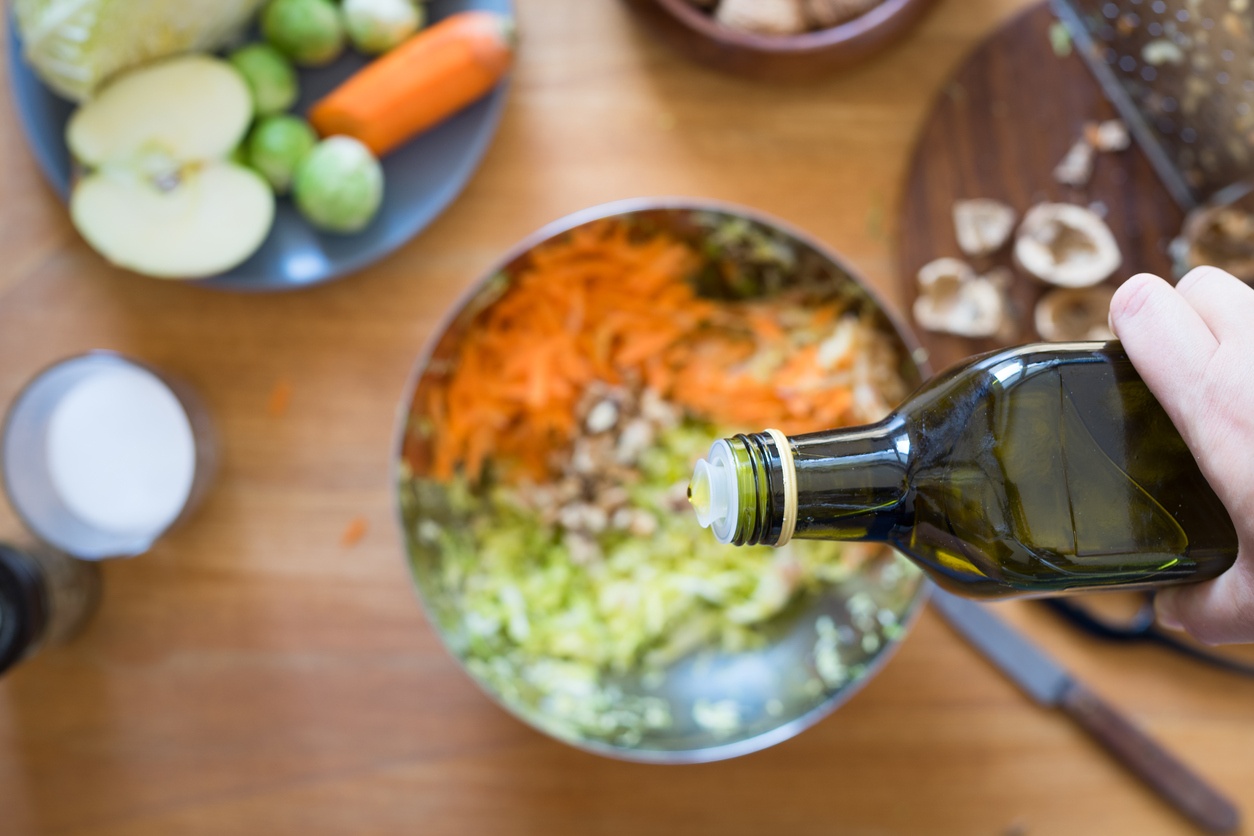“Healthy fats” is a relatively new term after the “all fats are bad” message we received for years back in the 90’s. I mean, back then, any foods that were cooked in fat or oil were considered a bad cardiovascular risk. Now we know better, there are some healthy oils.
As the years go on, so does research and now we know that “good” fats are very important to a healthy diet. Fat comes in two main forms – saturated and unsaturated. Unsaturated fats, a group that is considered healthy – even necessary to good health - are fluid (in the form of oils) at room temperature. Saturated fats come from animals and are usually solid at room temperature. Both are necessary for a well-balanced diet.
Trans fats are a type of synthetic fat that is formed by taking unsaturated fat, bubbling hydrogen through it and turning it solid at room temperature. Once the process of hydrogenating these unsaturated fats is complete, it is then considered dangerous to your health, raising your LDL, HDL and clogging up the whole works! So much so, that the city of New York has banned it from their restaurants’.
Which oils are healthy oils?
-
- Olive Oil – great taste and good for low heat cooking
- Flaxseed Oil – great source unsaturated fat and helps to decrease inflammation (don’t cook with flaxseed oil as it turns rancid if it gets over 107 degrees)
- Avocado Oil – high in oleic acid, this oil reduces cholesterol and may help improve heart health
- Walnut Oil – can help improve thinking, learning and memory and contains antioxidants (don’t cook with this either!)
- Grapeseed Oil – good source of Vitamin E and has a high smoke point (you can cook with this one!)
- Almond Oil - can help reduce the risk of heart disease and diabetes, is great for hair, and nails!
- Sesame Seed Oil – can improve hair, skin health, and help manage anxiety and depression. Also has a very yummy distinct taste!
What are the benefits?
-
- Fats are a major fuel source for your body (meaning they are high in calories) and are the main way we store energy
- You need fats to store the fat-based vitamins such as A, D, E, and K
- Fats are very important in giving your cells structure (cell membranes are composed of fat)
- Omega 3 fats (the “good fats”) are important for optimum nerve, brain and heart function
- The good fats are also important for healthy skin, hair and nails
- Good fats also enhance the flavor of foods and keep you full longer
How much should I eat each day?
Recommendations are for 20-35% of your daily intake to be from healthy fats. For example if you are eating a 2000 calorie per day diet, about 400-600 calories should be from good fats. Enjoy!

